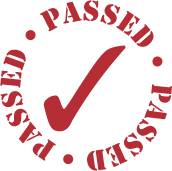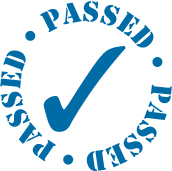State and National Advocacy
In today’s highly competitive business environment, changes in state and federal rules, regulations and laws can have a dramatic impact on your business operations. Members are provided with up-to-date information on new laws and regulations. More importantly, MIRA maintains a comprehensive government affairs program which constantly seeks to influence legislative and regulatory policies on the federal, state and local level affecting retailers. MIRA works diligently on a daily basis to protect your interests and profitability by monitoring legislative action and seeking changes, such as implementation of laws allowing for liquor price reduction, the Michigan MUSTFA Fund Amendment, fighting and opposing the expansion of the Bottle Bill, elimination of the Ohio CAT tax and Michigan SBT, and obtaining larger commissions for retailers on jackpot winning tickets. These and many other efforts have been the result of MIRA representatives fighting to ensure you remain competitive in the market. Our team effort approach also gives members an opportunity to take an active and direct role in communicating with their state and federal legislatures on issues of concern.
Government Relations Accomplishments & Priorities
Current as of July 2015
|
MICHIGAN ACCOMPLISHMENTS |
|
|
|
In 2013, MIRA advocated for further fraud reduction and for healthier food options by seeking elimination of the Electronic Benefit Transfer (EBT) restaurant program. While recognizing the concerns about fraud and the lack of nutritional food available by some restaurants in extending EBT use by homeless, elderly or disabled persons, the Department of Human Services announced that it will no longer participate in the EBT/restaurant program as of August 1, 2013. The independent retailers of MIRA will provide plenty of other healthy options for recipients who are homeless, elderly or disabled-to use their EBT cards.
|
 |
In 2014, Governor Rick Snyder recognized the importance of Independent Retailer with our very own Independent Retailer week.
|
 |
In 2013, MIRA led the charge of Michigan Retailer’s in actively supporting the passage of HB 4360 and 4361. These bills protect the consumer by imposing penalties on retailers involved in fraudulent transactions for food assistance programs related to the sale of alcohol products and lottery tickets. Both bills were signed into law and assigned Public Acts 55 of 2013 and 56 of 2013
, respectively. |
 |
In 2013, MIRA was instrumental in creating the amendment language which Senator Jones adopted in his package of bills which ended the use of Bridge card use at the ATMs of certain locations that are not SNAP Vendors.
|
 |
Senate Bill 791 was signed into law in 2014 becoming PA#416 of 2014. At least $20 Million annually from the funds collected by the 7/8th of a cent fee on all refined petroleum products will be used to create and administer an Underground Storage Tank Cleanup Fund Authority. The advantage to the petroleum retailer is gained because it can be used to comply with your Federal Financial Responsibility requirements and replace your UST insurance policy. MIRA joined other affected associations in fighting for this legislation for several years. It will become operational later in 2015.
|
 |
In Michigan the management of the Hazardous Material Substance Inspectors (HMSI) has been moved from the DEQ (
Department of Environmental Quality) to the Fire Services Bureau of the State Fire Marshal’s office. MIRA supported this restructuring. |
|
|
MIRA continues to defend against any Liquor Law changes that would have allowed unfettered expansion of liquor licenses in Michigan. Our Coalition of “stake holders” seeking to “put health first” was very successful and remains geared to defend the value of our members’ liquor licenses in 2014. MIRA is a leader in advocating for the State of Michigan to uphold community safety, responsibility and accountability in consideration of any proposed changes to Michigan’s alcohol regulations and laws.
|
 |
In 2012, when the State Treasury in Michigan sought to require “foil pouches” in which liquor is distributed to be redeemed and returned to our members’ stores, the MIRA was the lead retail voice in passing HB 5660, which amended the bottle law to EXEMPT “foil pouches” from the redemption process. This amendment will save stores selling the “foil pouch” liquor product from the necessity of spending literally thousands of dollars in “new” equipment.
|
 |
MIRA fought for and opposed legislation that would require roadside gas price sign “wording” to be the same size as the numerals. MIRA was successful in modifying the regulation and helped pass HB 5852 which now requires “condition of sale wording” to be one-half the height of price numerals. Furthermore, the modifiers “cash” or “credit” are exempt from this regulation until July of 2017. This extension of enforcement will provide an opportunity to modify price signs as they are replaced through normal attrition.
|
 |
2012 saw significant success as Governor Snyder, with strong advocacy from the MIRA, signed a new law that amended the Prepaid Sales Tax laws on gasoline to: create monthly changes in the Sales Tax Withhold Rate; eliminate the 10% threshold to trigger any changes in the rate; and-add the Prepaid Sales Tax element to diesel fuel. This success reduces the obligation of the retailer at each month’s end.
|
 |
In 2012, as it became apparent that K-2 and Spice (synthetic marijuana products) were harming and in some cases even killing children who were smoking these substances, MIRA partnered with the Michigan State Police in obtaining the passage of HB 5338, a law which now bands these substances from ever being sold in retail stores in Michigan.
|
 |
MIRA helped identify and “bust” gas stations that were cheating the citizens of Michigan out of their fair share of tax dollars. Through this effort we created a fair and level playing field for our law-abiding members. MIRA is working on this issue in Ohio as well. We are committed to eliminating “below cost selling” at every opportunity.
|
 |
During the 2012 “lame duck” session in Michigan, MIRA advocated for the successful adoption of “The Retail Fraud Act”, which punishes wrong doers in the grocery business, while protecting our MIRA members who honor the law.
|
 |
Underground Storage Tank Cleanup Legislation: MIRA, in concert with other stakeholders, was successful in obtaining the passage of HB 0528, P.A.0109 of 2012. Governor Snyder signed into law-this important legislation that created a more consistent, efficient and less expensive process for remediating underground storage tank sites. Buyers and sellers of real estate will now find it easier to move forward with modern development of these sites. MIRA members can be proud of the part they played in contacting legislators to gain support for the long-overdue legislation.
|
 |
In late 2010 and 2011, through a joint private-public initiative, MIRA members funded, and were solely responsible for, the change in disbursements of food stamps through the 23rd day of each month, rather than the first 10 days. This initiative helps the bottom line of MIRA retailers, while allowing beneficiaries to receive fresh food and produce throughout the month. This was accomplished through an $180,000 investment by MIRA and its generous members.
|
 |
MIRA negotiated and helped write and pass into law Public Act-166 (SB 331), a tax reduction for all Michigan liquor Retailers, totaling $14 million dollars. For the first time in 38 years, retail stores will pay the same amount as bars and restaurants for each bottle of liquor they purchase from the State. Each bottle of liquor will cost 1.85 percent less for every liquor retailer beginning October 1, 2012.
|
 |
When the 30 year old item pricing law was repealed, the MIRA was a leader in advocating that “new” technologies made the old law archaic and unnecessary. Today, our MIRA retailers are free from the onerous task of stamping a price on each and every item; they are free to use their money to hire new employees or expand their inventory.
|
 |
When Governor Snyder committed to allowing bars and restaurant to “cater” in terms of selling and delivering spirits, beer and wine at catered events, MIRA leadership negotiated to allow our member retailers to also cater events with spirits, beer and wine.
|
 |
The MIRA leadership advocated for, and supported the elimination of the “job killing” Michigan Business Tax (MBT). With the support of MIRA, Governor Snyder repealed the MBT, replacing it with a much more business-friendly tax that most MIRA members are not required to pay. MIRA attended the bill signing.
|
 |
The MIRA leadership team strongly advocated for and helped to “win” legislative changes that will reduce the costs of Workers Compensation Insurance to MIRA Retailers in Michigan.
|
 |
MIRA was asked to review changes to State law that required pharmacy’s located inside a retail establishment, to follow federal guidelines in the sale of all non-prescription products containing ephedrine or pseudoephedrine. We advocated for protection of our retailers in this law that prevented them from most civil lawsuits in the event their employee failed to follow the new law. Protecting our hard working retail store owners from liability is just one example of what our members have come to expect from the MIRA.
|
 |
MIRA played a role for retailers seeking changes to the taxation of tobacco products in Michigan. When the State Senate introduced legislation to require the “Roll Your Own” cigarette stores to pay the same or equal state taxes as our retailers selling cigarettes, they sought the help of MIRA and now this is the law.
|
 |
When the Michigan Department of Agriculture needed the feedback of the retail community in evaluating and supporting changes to Michigan’s “food safety” laws and regulations, they turned to MIRA for guidance, advice and leadership in protecting consumers and retailers alike.
|
 |
MIRA worked with Department of Treasury to address proper and complete tax collection efforts before increasing tax rates. Our efforts have helped produce a revised system that more accurately accounts for road and sales tax on fuels. |
|
MICHIGAN LEGISLATIVE PRIORITIES |
|
 |
MIRA is working on protecting the alcohol 3-tier system of distribution which assures retailers of a level playing field.
|
 |
MIRA continues to work with the State of Michigan’s Youth Access to Tobacco Workgroup (YATTW) to develop training, educational, and testing material that retailers can utilize to inform and train employees regarding the legal sale of tobacco products to customers.
|
 |
MIRA testified in opposition to increases in the fuel taxes paid by motorists. We continue to support restructuring of the road tax collection system that takes into consideration the increasing cost of fuel, the increase in miles per gallon for newer cars and trucks, and the siphoning off of taxes paid at the pump to finance other, unrelated government programs.
|
 |
MIRA is the lead Association in seeking to evolve the “bottle bill” into a Statewide Comprehensive Recycling Plan. Through our efforts, a coalition is forming and legislation will be introduced in the near future working to evolve the “bottle bill” and establish a statewide, comprehensive plan of recycling. MIRA published a white paper on this subject.
|
 |
MIRA continues to work on updating and solidifying the ½ mile rule, creating uniformity when dealing with alcohol laws with the creation of SDM license caps similar to SDD licenses.
|
 |
MIRA continues to support and advocate for minimum markup on alcohol/beer/wine, tobacco and gasoline. The minimum mark ups will protect both consumers and our retailers from predatory pricing schemes while helping to stabilizing retail prices throughout Michigan.
|
 |
MIRA opposes allowing local municipalities the option of imposing their own sales, road, or excise tax in addition to state and federal taxes. This scheme skews the retail market-place dynamics, creating “No Business Zones” on the far boundaries of the municipalities imposing the additional local taxes.
|
 |
MIRA opposes Automatic Temperature Compensation legislation applicable to retail fuel dispensers that would impose an unreasonable expense upon the retailer, with little, if any, benefit to the motorist. This is a solution looking for a problem.
|
 |
MIRA has been a leader in supporting all efforts of the State of Michigan to increase the enforcement of regulations that lead to the detection, arrest, and prosecution of “smugglers” of illegal tobacco products and liquor into Michigan. |
|
OHIO ACCOMPLISHMENTS |
|
 |
In 2014, Ohio Governor Kasich signed House Concurrent Resolution 32 recognizing and celebrating independent businesses. The resolution designates the first week in July as “Independent Retailers Week”, acknowledging that independent businesses are the backbone of our economy, providing goods and services to consumers and jobs to employees.
|
 |
An end to the CAT: On June 30, 2013, after many months of MIRA advocacy and leadership, Governor Kasich signed into law the legislation that will end the seven year reign of the controversial and unfair tax on motor fuel in Ohio-known as the CAT tax. In its place a NEW petroleum activity tax was enacted (beginning on July 1, 2014) one with a “single point of taxation” –the “rack”, and at the same rate of taxation for all who sell motor fuel in the State of Ohio. Now-independent gasoline retailers will be on a level playing field with all other gasoline retailers-resulting in fundamental fairness. Numerical results comparing tax savings from the second half of 2013 to the second half of 2014 indicated a 63% to 94% savings on tax fees!
|
 |
Small Business Tax Cut: The MIRA joined the fight and advocated for additional tax relief for the small businesses in Ohio-and WON! With the Governor signing the 2013 “budget bill” into law-owners and investors of a small business structured as a “pass through entity” (LLC’S, S-Corps., etc.) will now be able to deduct 50% from the first $250,000 of income from pass through entity sources.
|
 |
Income Tax Cut: Additionally, the MIRA advocacy in 2013 helped secure a budget item that will provide the citizens of Ohio with a 10% Income Tax cut-phased in over the next three years.
|
 |
When the Ohio Director of Transportation arbitrarily sought to increase the State fees for the cost of roadway and freeway business advertisement signs (the blue signs) without review by either the public or the legislature, MIRA joined the advocacy team that reminded ODOT that the Ohio Constitution required the advice and consent of the legislature BEFORE increasing taxes. We helped sponsor legislation that made this issue clear and the Governor recently signed the “blue-sign” bill into law. NO TAXATION WITHOUT REPRESENTATION. |
|
OHIO LEGISLATIVE ACCOMPLISHMENTS |
|
 |
MIRA continues to oppose increased “sin taxes” on tobacco and alcohol, especially when imposed by cities or counties. These proposals skew the marketplace, driving customers to lower taxed jurisdictions from higher taxed jurisdictions.
|
 |
MIRA testified in opposition to a Cuyahoga County proposal impose Fuel Quality Testing for fuel retailers in Cuyahoga County, Ohio and charge a fee for the testing. The City of Cleveland already does some testing, and MIRA feels that State of Ohio regulations already allow the state to perform the Fuel Quality Testing if they perceive that need. MIRA also opposes charging the dealer for this service.
|
 |
MIRA opposed a proposal by Cuyahoga County, Ohio to require registration of all non-bank owned ATM machines in Cuyahoga County. The county proposed charging an annual fee for each non-bank owned ATM. Since no service would be provided, other than charging a fee, MIRA opposed this proposal.
|
 |
MIRA opposed commercialization of Rest Areas on state roads. MIRA testified that the plan would drastically affect businesses of many categories: gas stations, restaurants, repair facilities, etc. Any profits enjoyed by states by commercialization of Rest Areas would be dampened by a corresponding decrease of business at interchanges. It’s a bad idea that MIRA continues to oppose.
|
 |
MIRA continues to support and press for an increase in commissions paid to lottery agents to bring them in line with neighboring states. Expenses have risen while commission rates have remained stagnant.
|
 |
The MIRA Government Relations team has joined Ohio Governor Kasich in advocating for the Legislature to pass his proposals that would reduce the cost of Worker’s Compensation Insurance in Ohio. This may be accomplished in the legislatures “lame duck” session. |
|
FEDERAL LEGISLATIVE PRIORITIES |
|
 |
MIRA advocated for an extension of federal funding for tax credits for use by our Retailers in expanding their stores and in securing equipment purchases for their establishments. After much debate and advocacy-the United States Congress voted to authorize thru 2013-“New Market Tax Credits” allowing qualifying retail businesses to receive tax credits equal to 39% of the initial equity investment spread out over a 7 year period.
|
 |
MIRA continues to support HFFI funding nationally and was instrumental in helping create the Michigan Good Food Fund alongside The Fair Food Foundation and the Kellogg Foundation.
|
|
FEDERAL LEGISLATIVE PRIORITIES |
|
 |
MIRA is working with multiple associations to limit the Federal EPA’s proposal to increase restrictions on already installed and operational underground storage tanks. We can support reasonable, upgraded regulations on replacement or new installations, but expensive changes to already operational and properly monitored UST’s should be phased-in over an extended period of time.
|
 |
MIRA has fought on behalf of retailers to assure that the SNAP program (bridge cards and WIC), remain fully funded by Congress. This is a “win-win” for our Michigan and Ohio citizens as well as our member retailers. These difficult economic times are the wrong time to cut people off from the benefits that feed their families. We will continue to fight this battle, despite the efforts by some to cut the funding by as much as 50%.
|
 |
MIRA continues to work opposing the expansion of Ethanol in gasoline to 15%, as allowed by the EPA. Our concerns are both for the motorist (since many Owners Manuals specifically void the warranty if gasoline with more that 10% Ethanol is used), and for our members, since the effect of E-15 on underground storage tanks, piping, meters, and dispensers have yet to be determined with “real-world” testing.
|
